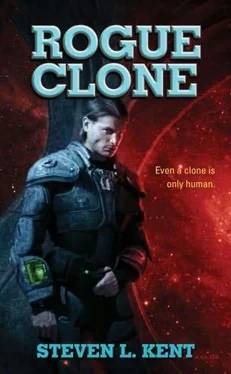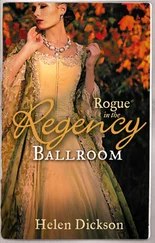Steven Kent - Rogue Clone
Здесь есть возможность читать онлайн «Steven Kent - Rogue Clone» весь текст электронной книги совершенно бесплатно (целиком полную версию без сокращений). В некоторых случаях можно слушать аудио, скачать через торрент в формате fb2 и присутствует краткое содержание. Жанр: Боевая фантастика, на английском языке. Описание произведения, (предисловие) а так же отзывы посетителей доступны на портале библиотеки ЛибКат.
- Название:Rogue Clone
- Автор:
- Жанр:
- Год:неизвестен
- ISBN:нет данных
- Рейтинг книги:3 / 5. Голосов: 1
-
Избранное:Добавить в избранное
- Отзывы:
-
Ваша оценка:
- 60
- 1
- 2
- 3
- 4
- 5
Rogue Clone: краткое содержание, описание и аннотация
Предлагаем к чтению аннотацию, описание, краткое содержание или предисловие (зависит от того, что написал сам автор книги «Rogue Clone»). Если вы не нашли необходимую информацию о книге — напишите в комментариях, мы постараемся отыскать её.
Rogue Clone — читать онлайн бесплатно полную книгу (весь текст) целиком
Ниже представлен текст книги, разбитый по страницам. Система сохранения места последней прочитанной страницы, позволяет с удобством читать онлайн бесплатно книгу «Rogue Clone», без необходимости каждый раз заново искать на чём Вы остановились. Поставьте закладку, и сможете в любой момент перейти на страницу, на которой закончили чтение.
Интервал:
Закладка:
By this time, the next U.A. fighter carrier emerged from the Network and the massacre repeated itself. The firing squad bombarded the ships until they could not defend themselves. Then two ships finished the execution, and two more GCF battleships took their place in the firing line.
Once the U.A. ships entered the Broadcast Network, it was too late to stop them or save them. A few ships were rerouted, but more than twenty Unified Authority ships were destroyed.
Closer to the atmosphere, GCF ships prowled above Safe Harbor like sharks in a feeding frenzy. They traveled in groups of three and four, circling small territories and firing powerful lasers at planetary targets. A satellite captured video of this directly from above, and you could see the ships clearly against the blue and white glow of the New Columbian atmosphere.
New Columbia’s planetary defenses crumbled quickly. In the beginning, plenty of green and red beams fired up from the planet, but they seldom hit targets. The gunnery men on the ships homed in on those rays and returned fire. It took them less than two minutes to silence the cannons below.
The fighters fared no better. Rows of battleships bore down on the Falcons as they tore out of the atmosphere. Several more GCF battleships swarmed the fighter carrier and the destroyers that had been guarding the broadcast discs.
The battle took ten minutes, not eight. During that entire time, the line of civilian ships fleeing New Columbia continued to stream into the Broadcast Network. The GCF ships never attacked them. When the last of the U.A. ships exploded, the GCF ships broadcasted away.
You may or may not win an even fight, but you will certainly take casualties. By stacking the deck with sixty-five ships, the commander of the Galactic Central Fleet guaranteed more than victory, he guaranteed himself a rout. The Unified Authority lost three forts, twenty-three capital ships, and hundreds of fighters on March 24, 2512. The GCF lost one soldier, the guy I killed to get aboard their transport. I was about to even the score.
CHAPTER TWENTY-EIGHT
The landing bay was disorganized. Of course, the battle was still going on when the transport landed on a Confederate ship, but that did not explain all of the chaos. This was supposed to be a military operation. During my time as a Marine, the ships I served on either ran like clockwork or key officers lost their jobs. That did not seem to be the case in the Confederate Navy.
As the rear door of the kettle split open revealing the deck, I saw cargo movers driving large crates through a confused crowd. Men sprinted to get to their stations. The movers, rudimentary robots that looked like a cross between a forklift and a battle tank, used radar to keep from colliding with people and objects. The mob of crewmen running back and forth around the movers must have overloaded the radar.
On the Kamehameha , every wall was polished and every light fixture dusted. On this ship, bunches of black and red cables hung from the walls like bunting. Branches from these cables snaked along the ceiling.
“Okay, let’s get this ship unloaded,” somebody yelled. There was a distinctly informal sound to the way the man gave orders, and I realized just how devoid of military leadership the Confederates must be. With very few notable exceptions, every officer that graduated from the military academies was Earth-born and Earth-loyal. It had always been so.
The only officers the Confederate Arms and Mogats would have were likely book-trained with no battle experience. They had a few notable defectors like Crowley and Halverson, but those officers would be too busy running the battles to work with the rank and file. The men I saw giving orders had not gone to basic training. They had not experienced the way seasoned drill sergeants stalk among enlisted men like a Tyrannosaurus rex in a herd of grass-eaters. The only experience these poseurs might have came from watching movies. Small wonder the Unified Authority won every land battle.
The men on the transport unloaded the crates. They mobbed boxes that were light enough to be lifted and trotted down to the deck, stacking them in marked areas. They were a willing throng, not a workforce.
What I needed above all else was to blend in. By the time I got involved in unloading the transport, the small stuff was off. That left crates filled with heavy equipment, munitions, and the like. A crew of men riding lifters, two-wheeled vehicles with mechanical dollies capable of lifting a five thousand-pound pallet, weaved their way aboard.
I joined the hubbub at the base of the ramp and watched for Colonel Wingate. Now that we were on a GCF ship, Wingate was just a small fish, but he was connected. He would lead me to the men in charge. The pack of men around me thinned and disappeared, and still Wingate did not leave the transport. The men in lifters skittered back and forth up the ramp until their work was done, and still Wingate remained on the ship.
Soon I was alone in the landing bay, hiding near the open transport. I could not remain on the deck much longer without someone spotting me.
Yellow and red lights began flashing around the deck. “Prepare for broadcast,” a mechanical voice intoned. “Prepare for broadcast in ten, nine, eight …”
I looked at the transport. Wingate had to have boarded this ship. He would not have remained on the planet. It was entirely possible that the commandos killed him and left his body in the woods to cover their tracks, but why go to such lengths? Why send men to Fort Clinton? Why smuggle him off the base? Why not just target his house from space?
“Seven, six, five, four, three …”
No need for stealth with that mechanical voice blaring so loudly. The flashing red and yellow lights created visual noise on the deck. The ship would self-broadcast any moment and, of course, images of Admiral Klyber’s pale corpse ran through my mind. I had a brief moment of uncertainty, then I sprinted up the ramp and into the dark belly of the transport. The kettle was completely empty. Harnesses hung from the ceiling. In the red light, they looked blacker than darkness. With its ring of hard benches and metal walls dully reflecting the non-glare amber light, the kettle looked like the inside of a kiln.
“Two, one. Broadcast initiated.” The voice sounded nearly as loud aboard the transport as it did in the landing bay.
Wingate had to be on this transport. He was not in the kettle. So he had to be up near the cockpit. The mechanical door began to close. Behind me, I heard voices.
“…complete shutout,” somebody said. “They’re guessing twenty, maybe twenty-five U.A. ships and as many as five hundred fighters.”
“Five hundred?” another voice asked.
“They had four hundred and twenty at Bolivar Air Base,” a voice said. I did not see the man speaking, though it was probably Wingate. So the traitor now was standing just outside the cockpit chatting with the pilots, getting a blow-by-blow account of the battle. They headed toward me. By the time Wingate and his friends reached the kettle, I had hid myself in the shadows near the ramp, wrapping myself up in cargo netting along the side of the wall.
“They had a carrier guarding the discs. That was another seventy fighters, so that makes four hundred ninety fighters.”
“How many of their ships were carriers?”
“I’d say all of ’em if I had to guess.” I could not see him, but I would have waged good money that was Wingate again.
“Broadcast complete,” the mechanical voice said over a speaker above the door of the kettle. The rear doors had sealed.
“All fighter carriers carry seventy fighters?”
“They’re supposed to. There’s a ship in the Scutum-Crux Fleet that has nothing but SEALS and transports.” All I could see was the netting around me and the metal walls, but I now thought I knew the sound of Wingate’s voice.
Читать дальшеИнтервал:
Закладка:
Похожие книги на «Rogue Clone»
Представляем Вашему вниманию похожие книги на «Rogue Clone» списком для выбора. Мы отобрали схожую по названию и смыслу литературу в надежде предоставить читателям больше вариантов отыскать новые, интересные, ещё непрочитанные произведения.
Обсуждение, отзывы о книге «Rogue Clone» и просто собственные мнения читателей. Оставьте ваши комментарии, напишите, что Вы думаете о произведении, его смысле или главных героях. Укажите что конкретно понравилось, а что нет, и почему Вы так считаете.












